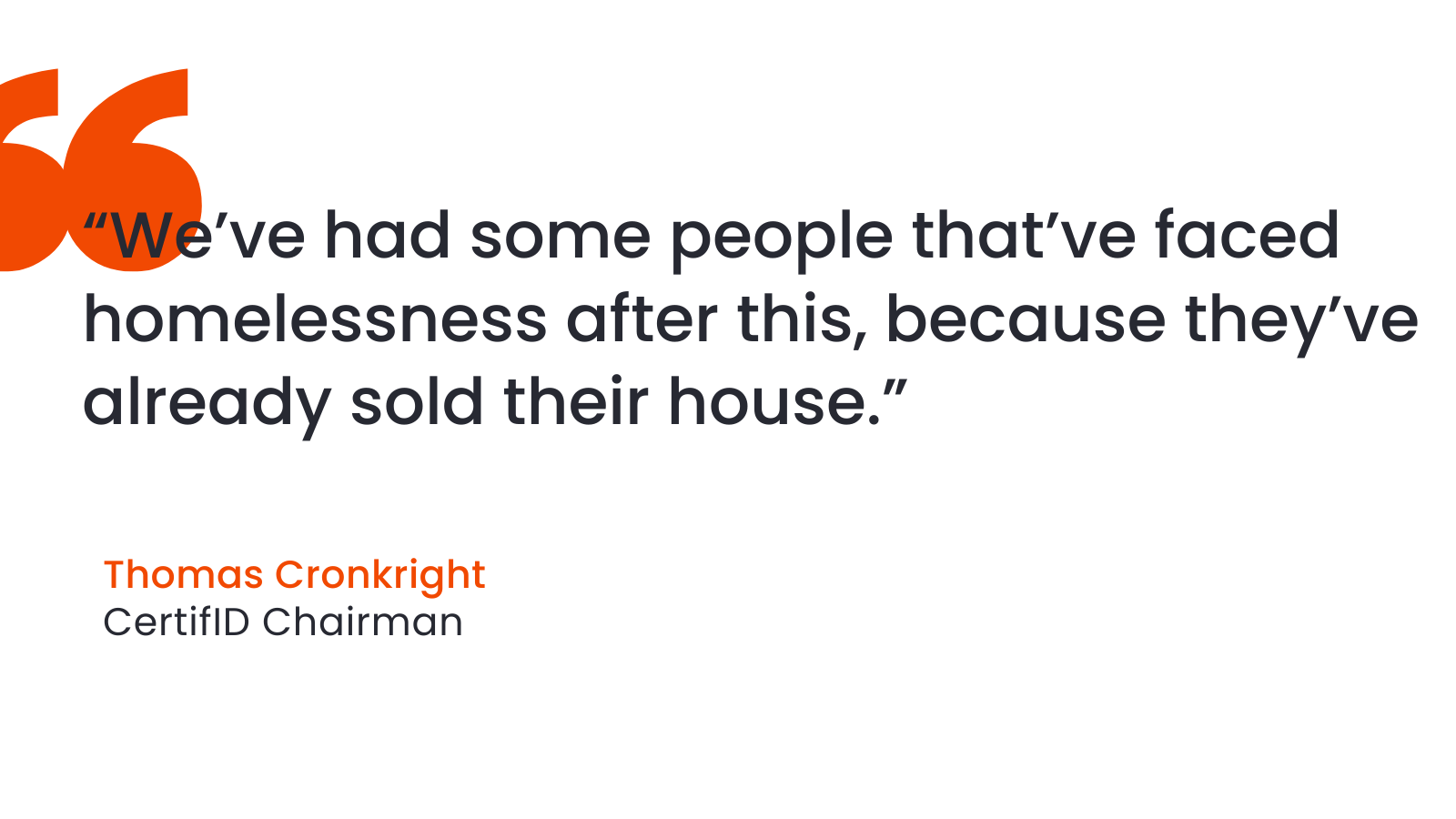Vacant property fraud is a growing problem in the real estate industry that involves the fraudulent sale, rental or transfer of vacant properties. These properties are often easy targets for fraudsters because they are unoccupied, and the owners may not be paying close attention to their maintenance or sale. Unfortunately, vacant property fraud can have significant financial, legal and emotional consequences for the victims.

CertifID Chairman Thomas Cronkright explains the scheme, “a fraudster will look up ownership records of a vacant property online, then pose as that property’s owner and hire a real estate agent to list it for sale.”
“The scammer will then push for a cash sale under market value in the hopes of closing quickly and stealing all of the buyer’s money.”
“I hate to say this but it’s relatively simple to do, and that’s what concerns all of us,” Cronkright said. “We’ve had some people that’ve faced homelessness after this, because they’ve already sold their house.”
There are several types of vacant property fraud schemes, including:
- Identity theft: Fraudsters may use stolen identities to pose as property owners or legitimate buyers to complete fraudulent sales or rentals of vacant properties.
- Forged documents: Fraudsters may forge ownership documents or transfer deeds to sell or rent vacant properties without the real owner’s knowledge or consent.
- Rental scams: Fraudsters may advertise vacant properties for rent, collect deposits and rent payments, but the property is not theirs to rent.
- Title fraud: Fraudsters may fraudulently obtain title insurance or transfer ownership of vacant properties to themselves to commit mortgage fraud.
To prevent vacant property fraud, it is essential to take several precautions, including:
- Conducting due diligence: Before buying, selling or renting any property, it is essential to conduct a thorough investigation and verify all the documents, including ownership, title, and transfer deeds.
- Checking the property’s status: It is essential to verify that the property is vacant and not occupied by anyone before initiating any transaction.
- Being vigilant: If someone approaches you with a deal that seems too good to be true, it probably is. Be wary of unsolicited calls, emails or letters offering property deals or rental opportunities.
- Verifying wire transfer instructions: Wire fraud is a common tactic used by fraudsters, so it’s crucial to verify the wire transfer instructions and confirm them with the legitimate parties involved.
- Reporting suspected fraud: If you suspect any fraudulent activities related to vacant property, report it to the authorities, including law enforcement agencies and the Federal Bureau of Investigation (FBI).
Vacant property fraud is a real threat to property owners, buyers, sellers, renters, and realtors. By taking precautions and being vigilant, we can prevent and combat vacant property fraud and protect ourselves from its significant financial and legal consequences. Always remember that prevention is better than cure, and it’s essential to do your due diligence before making any property transaction.
